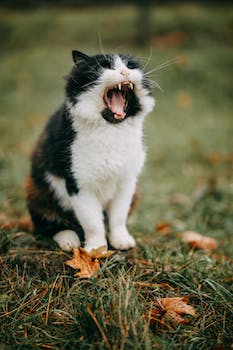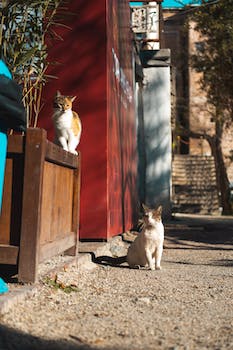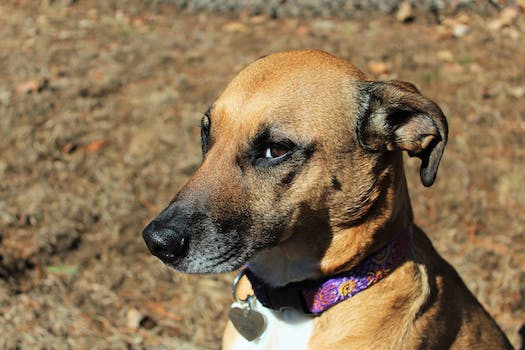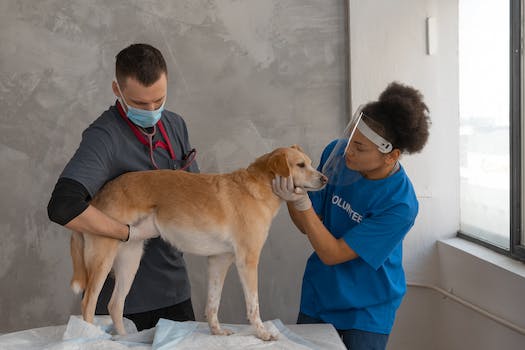

-
Table of Contents
"Understanding and Controlling Feline Diarrhea for a Happier, Healthier Cat."
Introduction
Feline diarrhea is a common gastrointestinal issue that can affect cats of all ages. It is characterized by loose, watery stools and can be caused by various factors such as dietary changes, infections, parasites, or underlying health conditions. Managing feline diarrhea involves identifying the underlying cause, providing supportive care, and implementing appropriate treatment strategies to alleviate symptoms and promote recovery. Understanding the causes, symptoms, and management of feline diarrhea is crucial for cat owners and veterinarians to ensure the well-being of their feline companions.
Causes and Symptoms of Feline Diarrhea
Comprehending and Managing Feline Diarrhea
Feline diarrhea is a common problem that many cat owners have to deal with. It can be a distressing and messy issue, but understanding the causes and symptoms can help you manage it effectively. In this article, we will explore the various factors that can lead to feline diarrhea and the signs to look out for.
There are several potential causes of feline diarrhea, ranging from dietary issues to underlying health conditions. One of the most common causes is a sudden change in diet. Cats have sensitive digestive systems, and any abrupt alteration in their food can disrupt the balance of their gut flora, leading to diarrhea. It is important to introduce new foods gradually to avoid this problem.
Another common cause of feline diarrhea is food intolerance or allergies. Just like humans, cats can develop sensitivities to certain ingredients in their diet. Common culprits include dairy products, grains, and certain proteins. If you suspect that your cat may have a food allergy, consult with your veterinarian to determine the best course of action.
Parasites are another potential cause of feline diarrhea. Worms such as roundworms, hookworms, and giardia can all lead to gastrointestinal upset and diarrhea. Regular deworming is essential to prevent these parasites from causing further issues. Your veterinarian can recommend the appropriate deworming schedule for your cat based on their lifestyle and risk factors.
In some cases, feline diarrhea may be a symptom of an underlying health condition. Inflammatory bowel disease (IBD), pancreatitis, and hyperthyroidism are just a few examples of conditions that can cause chronic diarrhea in cats. If your cat's diarrhea persists or is accompanied by other concerning symptoms such as weight loss or vomiting, it is crucial to seek veterinary attention for a proper diagnosis and treatment plan.
Recognizing the symptoms of feline diarrhea is essential for timely intervention. The most obvious sign is loose, watery stools that may be accompanied by an increased frequency of bowel movements. You may also notice a change in the color or consistency of your cat's stool. Other symptoms to watch out for include lethargy, loss of appetite, and dehydration. If your cat shows any of these signs, it is important to monitor them closely and seek veterinary advice if necessary.
Managing feline diarrhea involves a combination of dietary adjustments and medical interventions. In cases of mild diarrhea, fasting your cat for 12 to 24 hours can help give their digestive system a chance to rest and recover. After the fasting period, gradually reintroduce a bland diet consisting of easily digestible foods such as boiled chicken or rice. If the diarrhea persists or worsens, consult with your veterinarian for further guidance.
In some cases, your veterinarian may prescribe medications to address the underlying cause of the diarrhea. Antibiotics, probiotics, and anti-inflammatory drugs are commonly used to treat feline diarrhea, depending on the specific diagnosis. It is important to follow your veterinarian's instructions carefully and complete the full course of treatment to ensure the best outcome for your cat.
In conclusion, feline diarrhea can be a challenging issue to manage, but understanding its causes and symptoms is crucial for effective treatment. By being aware of potential triggers such as dietary changes, food allergies, parasites, and underlying health conditions, you can take proactive steps to prevent and address feline diarrhea. Remember to consult with your veterinarian for proper diagnosis and guidance on the best course of action for your furry friend.
Effective Treatment Options for Feline Diarrhea

Feline diarrhea is a common problem that many cat owners have to deal with. It can be caused by a variety of factors, including dietary changes, infections, parasites, or underlying health conditions. Regardless of the cause, it is important for cat owners to understand how to effectively manage and treat feline diarrhea.
When it comes to treating feline diarrhea, there are several options available. The first step is to identify the underlying cause of the diarrhea. This can be done through a thorough examination by a veterinarian, who may also recommend additional tests such as blood work or fecal analysis. Once the cause is determined, appropriate treatment can be initiated.
One of the most common causes of feline diarrhea is dietary changes. Cats are known for being sensitive to changes in their diet, and sudden changes can often lead to digestive upset. In these cases, the best course of action is to gradually transition the cat to a new diet, allowing their digestive system time to adjust. It is also important to ensure that the new diet is of high quality and easily digestible.
Infections can also cause feline diarrhea. Bacterial, viral, or parasitic infections can all lead to digestive issues in cats. In these cases, treatment may involve the use of antibiotics, antiviral medications, or anti-parasitic drugs. It is important to follow the veterinarian's instructions carefully and complete the full course of treatment to ensure that the infection is fully eradicated.
In some cases, feline diarrhea may be a symptom of an underlying health condition. Inflammatory bowel disease, pancreatitis, or thyroid disorders are just a few examples of conditions that can cause chronic diarrhea in cats. Treatment for these conditions may involve medication to manage symptoms and control inflammation. In some cases, dietary modifications may also be necessary to help alleviate symptoms.
Regardless of the cause of feline diarrhea, it is important to monitor the cat's hydration levels. Diarrhea can lead to dehydration, which can be dangerous for cats. Providing access to fresh water at all times is essential, and in some cases, the veterinarian may recommend additional measures such as administering fluids under the skin or intravenously.
In addition to medical treatment, there are also some home remedies that can help manage feline diarrhea. Probiotics, for example, can help restore the balance of good bacteria in the cat's gut and promote healthy digestion. Pumpkin puree is another natural remedy that can help firm up the cat's stool. However, it is important to consult with a veterinarian before trying any home remedies, as they may not be appropriate for all cats or may interfere with other treatments.
In conclusion, feline diarrhea can be a frustrating and concerning problem for cat owners. However, with proper diagnosis and treatment, it can be effectively managed. Identifying the underlying cause of the diarrhea is crucial in determining the appropriate treatment approach. Whether it is a dietary change, an infection, or an underlying health condition, there are various treatment options available. It is important to follow the veterinarian's instructions carefully and monitor the cat's hydration levels. With the right treatment and care, cats can recover from diarrhea and return to their normal healthy selves.
Preventive Measures for Feline Diarrhea
Feline diarrhea is a common problem that many cat owners have to deal with. It can be caused by a variety of factors, including dietary changes, infections, and underlying health conditions. While it is important to seek veterinary care if your cat is experiencing diarrhea, there are also preventive measures that can be taken to reduce the risk of this unpleasant condition.
One of the most effective ways to prevent feline diarrhea is to provide your cat with a balanced and nutritious diet. Cats are obligate carnivores, which means that their bodies are designed to thrive on a diet that is high in animal protein. Feeding your cat a high-quality commercial cat food that meets their nutritional needs is essential for their overall health and can help prevent digestive issues, including diarrhea.
In addition to a proper diet, it is important to ensure that your cat has access to clean and fresh water at all times. Dehydration can exacerbate diarrhea and lead to further health complications. Cats are not always the best at drinking water, so consider providing them with a water fountain or adding wet food to their diet to increase their water intake.
Another preventive measure for feline diarrhea is to keep your cat's environment clean and free from potential sources of infection. Regularly cleaning your cat's litter box and providing them with a clean and comfortable space to eliminate can help reduce the risk of bacterial or parasitic infections that can cause diarrhea. It is also important to keep your cat's living area free from any toxic substances that they may ingest, as this can also lead to digestive issues.
Stress can also play a role in feline diarrhea, so it is important to create a calm and stable environment for your cat. Cats are sensitive creatures and changes in their routine or environment can cause stress, which can manifest as diarrhea. Providing your cat with a consistent routine, plenty of mental and physical stimulation, and a safe space to retreat to can help reduce their stress levels and minimize the risk of diarrhea.
Regular veterinary check-ups are another important preventive measure for feline diarrhea. Your veterinarian can assess your cat's overall health and identify any underlying conditions that may contribute to diarrhea. They can also provide guidance on proper nutrition, vaccinations, and parasite prevention, all of which can help prevent diarrhea.
In conclusion, feline diarrhea is a common problem that can be managed and prevented with the right measures. Providing your cat with a balanced diet, access to clean water, a clean environment, and a stress-free lifestyle are all important factors in preventing diarrhea. Regular veterinary check-ups are also crucial for maintaining your cat's overall health and preventing digestive issues. By taking these preventive measures, you can help ensure that your cat stays happy and healthy, free from the discomfort of diarrhea.
Q&A
1. What are the common causes of feline diarrhea?
Common causes of feline diarrhea include dietary changes, food intolerance, gastrointestinal infections, parasites, stress, and certain medical conditions.
2. How can feline diarrhea be managed?
Feline diarrhea can be managed by identifying and addressing the underlying cause, providing a bland diet, ensuring proper hydration, administering medication if necessary, and maintaining good hygiene.
3. When should I seek veterinary care for my cat's diarrhea?
Veterinary care should be sought if the diarrhea persists for more than 24-48 hours, if there is blood in the stool, if the cat shows signs of dehydration or lethargy, or if there are other concerning symptoms present.
Conclusion
In conclusion, comprehending and managing feline diarrhea is crucial for cat owners to ensure the well-being of their pets. Understanding the potential causes, such as dietary changes, infections, or underlying health conditions, can help in determining the appropriate treatment. It is important to consult a veterinarian for an accurate diagnosis and to develop a tailored management plan, which may include dietary adjustments, medication, or further testing. Prompt attention and proper care can help alleviate feline diarrhea and improve the overall health of the cat.












